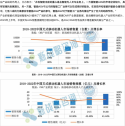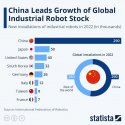I agree that Chinese companies are working in a highly competitive market and are risk adverse. R&D and innovations happen in a more incremental fashion to gauge consumer feedback or interest.
Lots of the highly cited examples of Chinese leading edge in EV, battery, green tech are establish business cases that have assured markets. There are no suicidal gambits made.
It is difficult to build extremely novel business case in China because nobody knows if there is actually a market for it or not. Investors will not give you money for a stupid sounding idea, even if you think you are industry expert and they are not. Big companies are even less likely than startups to take a risk like that.
In the US, your crazy idea doesn't work, you just declare bankruptcy and move on to next one.
Trends may change as Chinese companies gain more confidence being market leaders.
US big companies are also fairly risk adverse, that's why Google was also caught flatfooted by a startup openAI's chatGPT.
Lots of the highly cited examples of Chinese leading edge in EV, battery, green tech are establish business cases that have assured markets. There are no suicidal gambits made.
It is difficult to build extremely novel business case in China because nobody knows if there is actually a market for it or not. Investors will not give you money for a stupid sounding idea, even if you think you are industry expert and they are not. Big companies are even less likely than startups to take a risk like that.
In the US, your crazy idea doesn't work, you just declare bankruptcy and move on to next one.
Trends may change as Chinese companies gain more confidence being market leaders.
This is not what you think, the joke is mocking Google's ineptitude in implementing any product. They have a tendency to kill products without exploring them to their full potential, due to bad product managers. Most of the products are competitors or copies of other company products. Nothing particularly new or original there.The industry literally makes jokes about this - see, for example, ,
US big companies are also fairly risk adverse, that's why Google was also caught flatfooted by a startup openAI's chatGPT.



